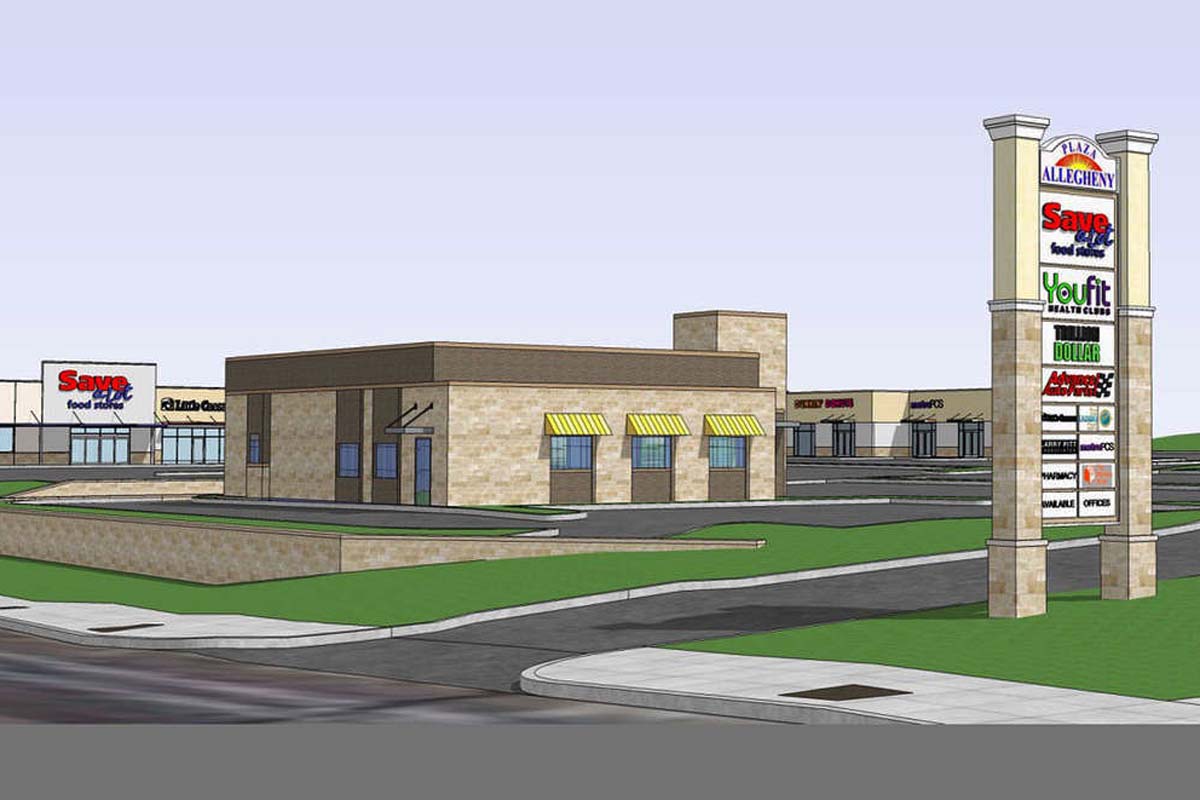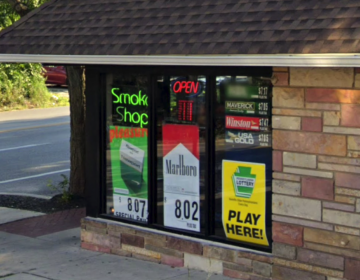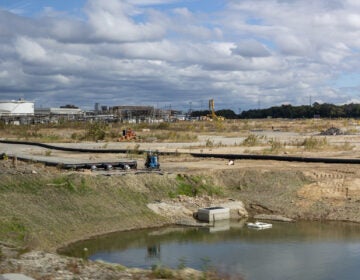March 1: PennDOT wants troopers out the transpo budget | Auto-centric shopping center in Fairhill | Pedestrian scramble

PennDOT doesn’t want the transportation budget to fund the state troopers anymore, reports Ed Blazina. Funding increases for the troopers have been absorbing more and more of the funding increases under Act 89, so the Wolf administration is looking to find a new home for them in the state budget.
The GROW NJ tax credit program is spurring an ambitious redevelopment of the Ruby Match Factory in Camden, reports Alaina Mabaso. “This 1899 waterfront warehouse has been getting buzz recently with the announcement of plans to renovate it into an airy mixed-use loft-style retail and office space — the first of its kind in contemporary Camden. When completed, the 74,500 square-foot building (with a total of 71,000 square feet of offices and a planned 3,500 square-foot restaurant and art gallery) will have a newly added second level offering views of the entire space.”
Construction begins today on an auto-centric, suburban-style shopping center in economically-depressed Fairhill, financed by PIDC, reports Jacob Adelman. “The shopping center will occupy more than nine acres formerly consisting of junkyards, an abandoned Conrail spur, and city-owned vacant lots, according to the mayor’s office.”
Irina Zhorov at Keystone Crossroads takes a sober look at how we got all this lead piping, and what it would take to remove it. “Mandating their replacement means imposing significant costs on homeowners — replacing it can cost thousands of dollars — or finding ways to reimburse them for the expense. While some municipalities, like Madison, Wis., provide reimbursements for lead removal, Keystone Crossroads found no such programs in Pennsylvania. “
The Washington Post is running an opinion series on the question “Are Americans leaving cars behind?” The first entry comes from “Carfree Cities” author J.H. Crawford, who argues cars work “against the fundamental purpose of cities: to bring many people together in a space where social, cultural and economic synergies could develop. Because cars require so much space for movement and parking, they work against this objective — they cause cities to expand in order to provide the land cars need.”
Meet the pedestrian scramble. The traffic control method, sometimes called a ‘Barnes dance’ or diagonal crossing, stops traffic on all sides of an intersection at once, and allows pedestrians to cross the street every which way. When pedestrians have finished crossing, traffic resumes. Los Angeles is introducing the concept at 11 intersections this year. What intersections would be the best candidates for this in Philly?
WHYY is your source for fact-based, in-depth journalism and information. As a nonprofit organization, we rely on financial support from readers like you. Please give today.






